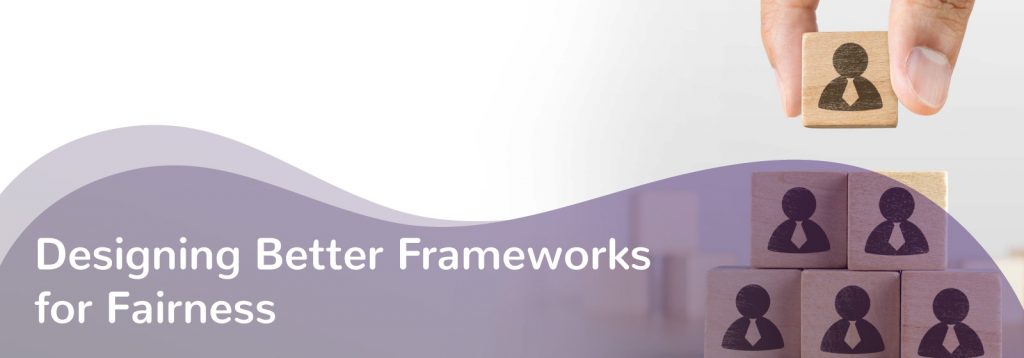A fair workplace, where both employees and employers are in a space that’s happier and kinder, matters.
Let’s face it, such an environment would lead to better performances, engagement on all ends, and staff retention rates, which makes total business sense.
The stats back this up. A study by Gallup, which specialises in global analytics and advice, showed recognition improves 82% of employees’ job performance, and a top factor in overall engagement is regular praise from leaders and managers.
Yet while it seems like a no-brainer, getting to workplace utopia seems harder than it sounds for some companies.
2021 has not been the best on this front for them, with companies of different industries and sizes pilloried in the public eye for having toxic workplaces.
In July, current and former employees of video game developer Ubisoft Singapore alleged that sexual harassment and racial discrimination had occurred in the company, with Singapore employment watchdog Tripartite Alliance for Fair and Progressive Employment Practices (TAFEP) investigating the allegations.
In September, the co-founder of independent bookstore Books Actually, Kenny Leck, was forced to step down and give up ownership of the store after allegations of failing to pay salaries, and having inappropriate relationships with younger female staff.
Most recently, production firm Night Owl Cinematics’ (NOC) co-founder and chief executive officer Sylvia Chan was confronted with a barrage of allegations posted on social media for being verbally abusive with staff.
These cumulated with a public apology by Sylvia, who said:
“I always thought a leader should be tough, and I now realise that I may have come on too strong, and people have now perceived me to be unkind and rude.”
Moving past a hierarchical mindset
Unfortunately, such beliefs may be part of our Asian work culture that favours hierarchy, shared Trevor Yu, an associate professor in organisational behaviour in the division of leadership, management and organisation at Nanyang Business School.
“To an extent, our workplaces mirror what we have in our general society and prevailing culture that we live in.
“Singapore society tends to be accepting of unequal relationships between people where power is centralised and control based on rules and clearly defined relationships.
“The hierarchical workplace thus fits better into this prevailing context.”
Of course, such behaviour isn’t limited to just Singapore, and the advent of social media and increasing digitalisation will continue to lead and ensure more appropriate behavior, Trevor believes.
“Having a more explicit understanding of what constitutes bullying (e.g. code of conduct) and procedures that deal with such instances at the human resource and workplace leadership level will discourage bad behavior,” he added.
Age doesn’t matter
But it’s not just poor workplace conduct that can hold both employers and employees from reaching their organisational and professional goals.
The irony is while hierarchical mindsets have been a challenge to evolve past, globally governments are dealing with age bias in hiring and staff retention as well.
Khoong Chan Meng, the chief executive officer at National University of Singapore’s Institute of Systems Science, believes that trends are changing locally though, thanks to digitalisation yet again.
“Businesses are increasingly appreciating the value of older workers who bring a wealth of experience, are resilient against the economic challenges brought on by Covid-19, and maintain the zest to learn and harness the potential of technology.”
Of course, older workers have had to step up in bridging the digital gap, skill sets and culture wise, and Chan Meng is inspired to see an influx of “mature professionals sitting alongside others who are as young as their children” in NUS’s learning programmes.
“At the end of the day, older employees and jobseekers should be open minded in refreshing and redesigning their careers to take advantage of technology to level and enhance their playing field.”
Understanding and managing differences is key
Employers, managers, workers, and jobseekers all have different goals and priorities, and building a workforce that will help everyone feel satisfaction and fairly treated is always a challenge. What may help is first understanding the demographical differences, and adjusting workplace and hiring policies to match.
Wilson Chia, an employer engagement manager at AKG (formerly known as Maximus), one of WSG’s career matching providers, compared ‘Boomers’ (generally defined as people born from 1946 to 1964), ‘Millennials’ (born between 1981 and 1996 (ages 23 to 38 in 2019) and ‘Gen Z’ (born between 1997 and 2012).
He shared: “Boomers tend to adopt the view that hard work pays off and are attracted to job stability and security.
“Millennials tend to value jobs that aligns to their values, give them financial stability, celebrates their achievements.”
While they are tech savvy, they also hold themselves to high moral standards, appreciating public recognition, acceleration and growth, Wilson added.
Read More: Unhappy With Your Company? Maybe it’s an Issue of Values or Priorities
“Gen Z may often be viewed as dreamers, being idealistic and more easily influenced due to their highly plugged-in nature, and may measure their success with more intangible benchmarks such as happiness and satisfaction.”
Associate Professor Song Zhaoli, from the department of management and organisation at NUS Business School, added: “Relatively speaking, younger generations tend to ask for more flexibility, self-control, challenge, and fun.
“Work is not longer viewed just as a necessity, but rather as a life experience.
“Because of this shift in work ethic, employers have to also pivot their company image, organisational values, job requirements and perks to make themselves attractive.
“Google, Facebook, Tencent, ByteDance and Starbucks all offer interesting policies that local companies can consider adopting.”
While there is no one-size-fits-all approach to integrating the generational gaps, an open-door policy respecting the ideals, aspirations, values and concerns of all groups can give rise to better integration, Wilson concluded.
Whether you’re an employer, manager, employee or job-seeker, everyone has a role in building better workplace culture in Singapore. Here’s some tips on how we can get there together!

Which HR practices in Singapore Need to Evolve to Meet the New Needs of Jobseekers?
The Truth About Ageism: It Affects Everyone And is More Common Than We Think
Removing the Invisible Barriers to Employee Mental Wellness Programmes
5 Conflict Resolution Strategies Every Manager Should Know
Tips on Creating a Healthier Company Culture in the Office

How to Make the Best of the Hybrid Working Arrangement
6 Easy Ways to Support Your Colleagues and Be More Encouraging at Work
How to Build a Positive Company Culture
How to Create a Happier Workplace Filled With Gratitude

Working for a Bad Boss: Tips to Help You Improve Life at Work
How to Stop Gender Stereotyping at Work and Start Judging Based on Merit















